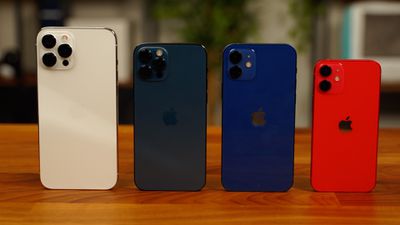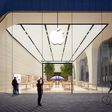The iPhone 12 series has now sold over 100 million units and powered the first iPhone sales super-cycle since the launch of the iPhone 6, according to Counterpoint Research.

The iPhone 12 lineup passed 100 million sales in April, meaning that the devices achieved the landmark figure within seven months of its launch. By comparison, this is two months earlier than the iPhone 11 series that launched in 2019, and almost the same as the iPhone 6, which powered a sales volume super-cycle around the 4G transition in 2014 and 2015. This means that the iPhone 12 series is the first volume super-cycle iPhone in six generations of the device.
Counterpoint analysis explained that in the case of the iPhone 6 series, sales were supported by pent-up demand for bigger-screen iPhones, while for the iPhone 12 series, 5G connectivity and OLED displays across the lineup were the predominant factors in attracting customers.
The volume super-cycle is expected to lead to record-breaking revenue with the average selling price for iPhones being at an all-time high. The impressive sales performance of the iPhone 12 also gave Apple a record-high market share for April. It has also consistently achieved a record-high market share in the US since October 2020 and the trend is expected to continue.
Consumer preferences also changed between the iPhone 11 and iPhone 12 lineups. Consumers showed more interest in the iPhone 12 Pro Max, with a 29 percent share of sales, during the first seven months after its launch compared to the iPhone 11 Pro Max, which had a 25 percent share of sales. This is also one of the reasons for the iPhone 12 series grossing 22 percent more revenue than the iPhone 11 series in the first seven months after launch.
Sales in the United States accounted for 40 percent of global iPhone 12 Pro Max sales until April. The iPhone 12 Pro Max was supported by aggressive operator promotions, making it the best-selling device in the U.S. consistently since December 2020.
The iPhone 12 series was also comparatively less affected in terms of sales by the global health crisis than the iPhone 11 series, which saw reduced sales as customers held onto their devices more than usual. In addition, a large proportion of users who kept their previous smartphone due to uncertainty during the global health crisis last year upgraded to an iPhone 12 once it became available.
























